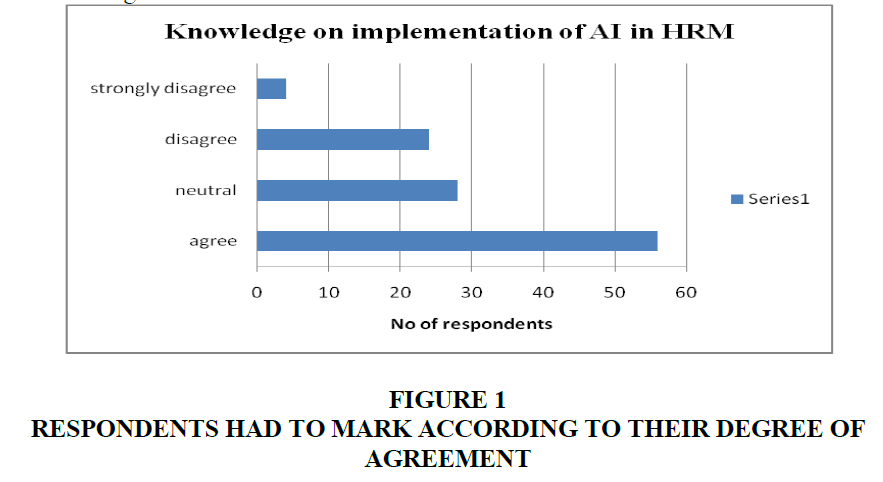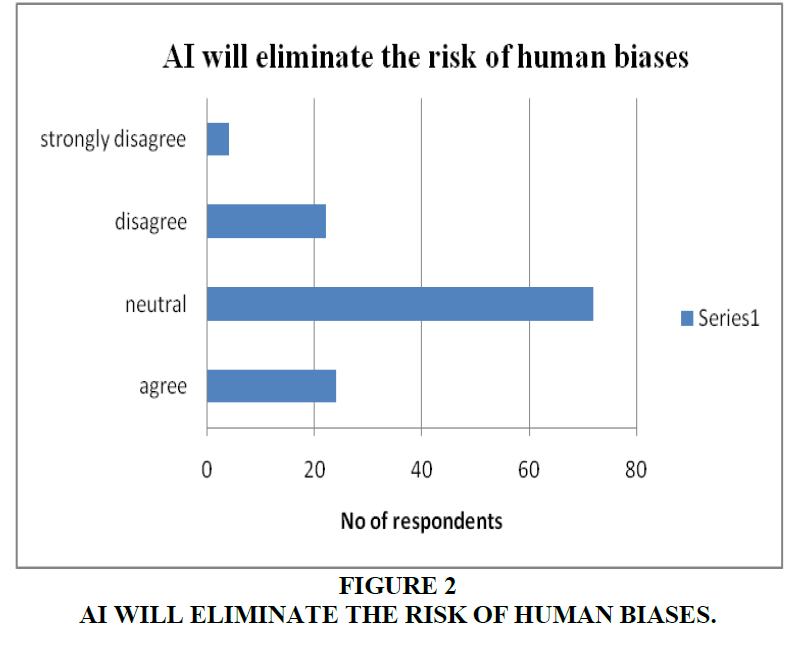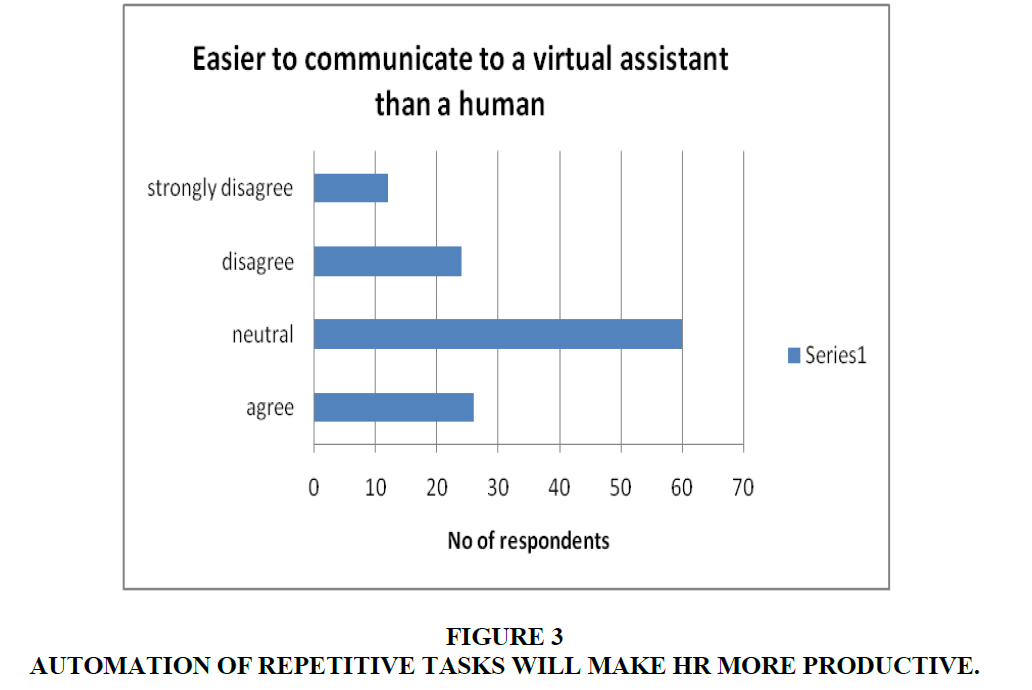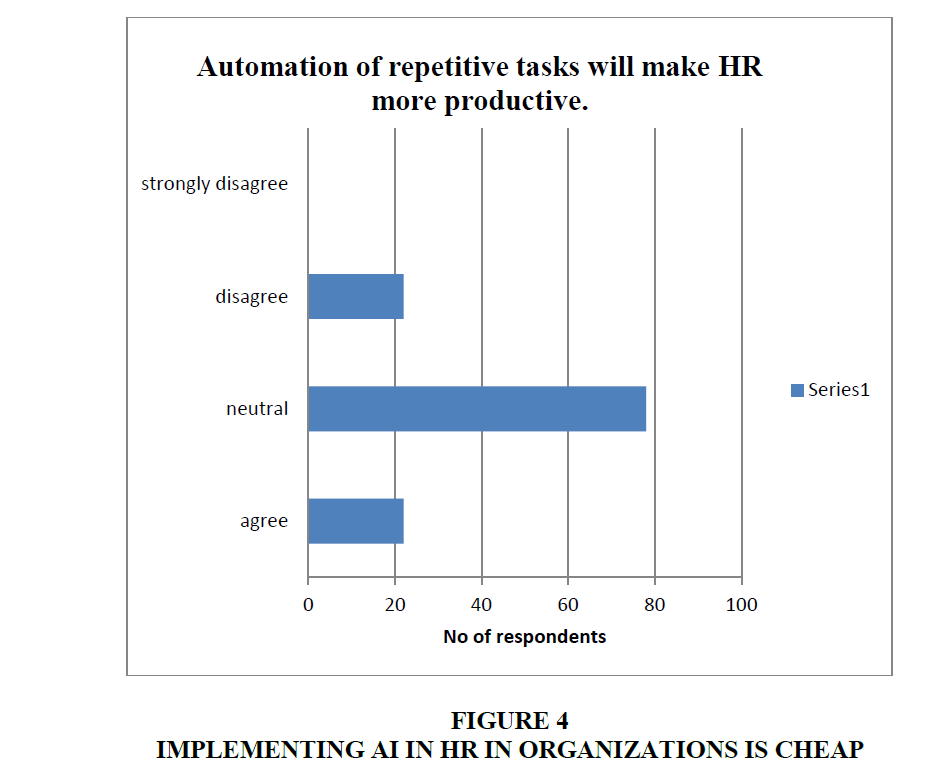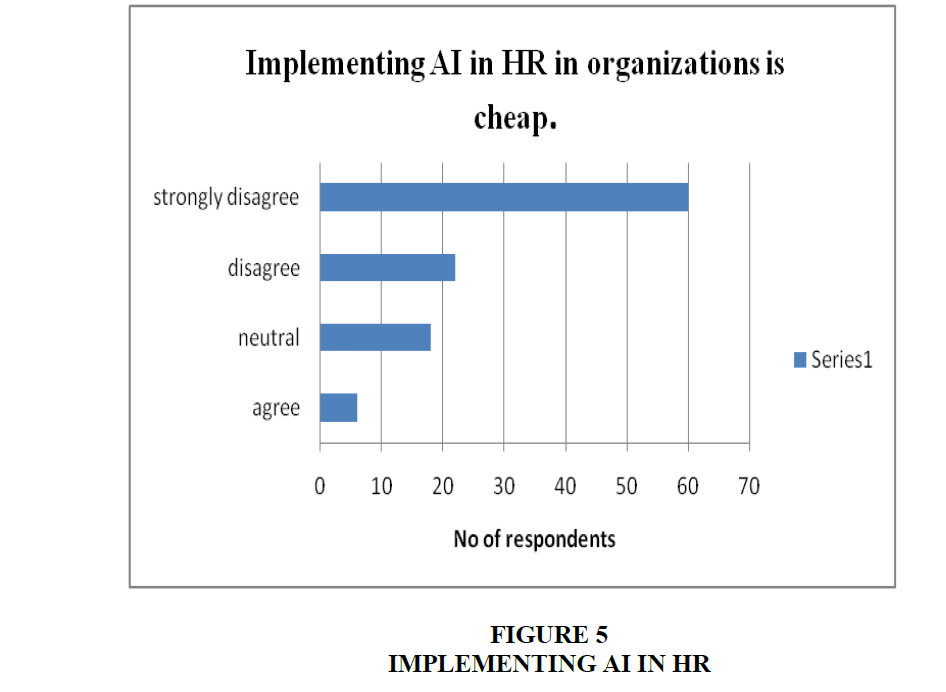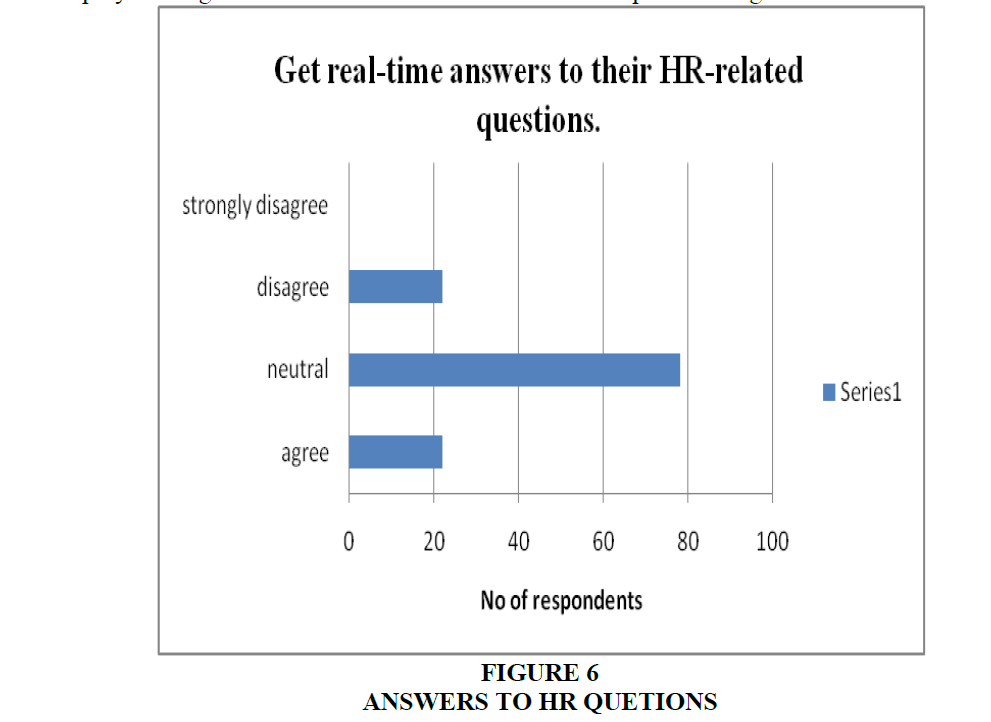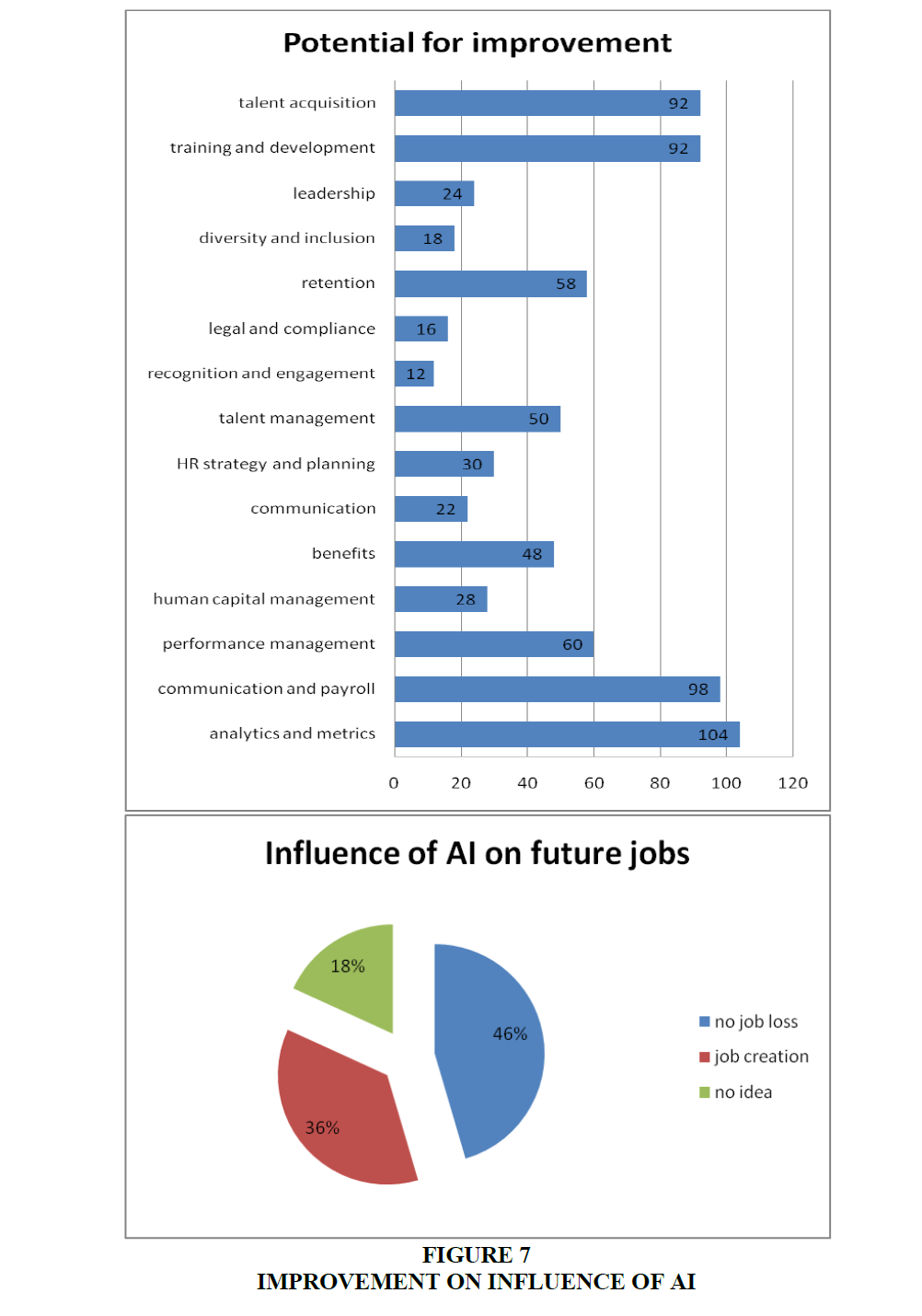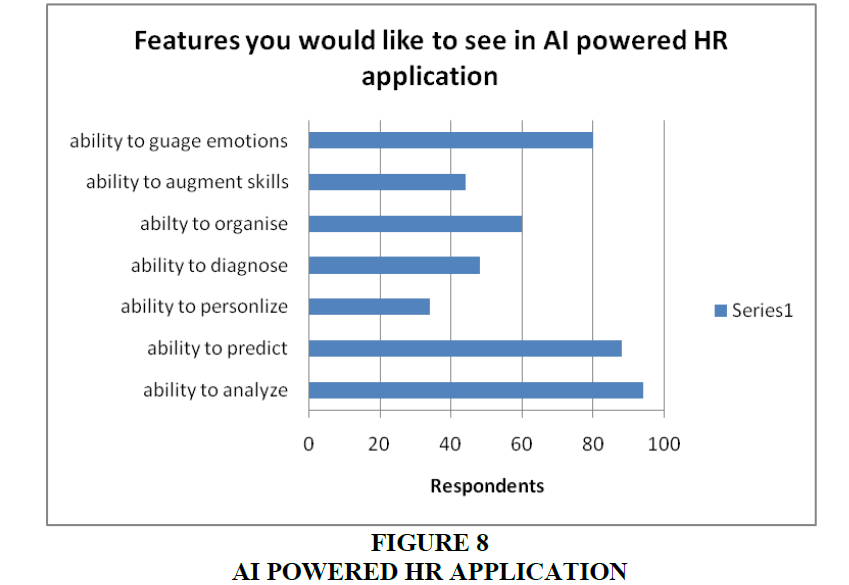Research Article: 2022 Vol: 26 Issue: 4
Is Ai The Next Big Thing In Human Resources?
Leelavati T.S., SR Gudlavalleru Engineering College
Madhavi S., SR Gudlavalleru Engineering College
Hemanth Kumar T., SR Gudlavalleru Engineering College
Susmitha K., SR Gudlavalleru Engineering College
Roopa Krishna Chandra G., Andhra Loyola Institute of Engineering and Technology
Citation Information: Leelavati T.S., Madhavi S., Hemanth., Susmitha K., & Roopa G., (2022). Is AI the next big thing in human resources?. Academy of Marketing Studies Journal, 26(4), 1-10
Abstract
In today's world, innovation is a never-ending process that has touched our lives in unexpected ways. The world is evolving at such a rapid pace that businesses must adapt in order to flourish in this competitive environment. Furthermore, Human Resources (HR) is regarded as a critical component of every business since it primarily deals with people, and people are the most precious asset of any organisation. Recruitment is the most important position in human resources since it brings in the talents and knowledge of both new and experienced individuals. Much technological advancement has happened around the world over the decades. Strategic judgement improves performance by reducing the manual stress of certain duties. This study aims to demonstrate how AI is currently being utilised in various areas of human resources and why some people still want to go the traditional path. The main reason for choosing this topic was because AI is the future of human resources. With the help of AI, many occupations will be replaced and created in the future. Because the HR department will be revolving around AI in the near future, and we will be involved in some capacity, the researcher feels that learning more about AI would be advantageous. The researcher examined primary data from a sample of 61 people who are now pursuing or want to pursue a career in human resources. The data was gathered using an online questionnaire that examined whether or not they were aware of the application of AI in various sectors of HR and whether or not they believe AI is the future of HR. According to the findings, the majority of them were informed, and they believe AI is the next skill in HR.However, they believe that AI needs to develop in many areas before it can take over the human touch will always be present. The research focuses on individuals in HR fields solely because the research study was focused on detailed HR fields, which provided the study with full insights on AI in HR.
Keywords
Artificial Intelligence, Human Resources, Recruitment, Performance.
Introduction
Artificial intelligence, also known as Machine Intellect, is a tool that employs human intelligence in a variety of sectors and is utilised in all industries to boost production and efficiency. It is software that can think intelligently in the same way that the human brain does. It strives to think and acts rationally like a person Anupam (2017). Artificial Intelligence is defined in computer science as 'Intelligence Agents.’ It is really referred to as the attempts made to make a machine think in a logical manner. AI was not created in the last few years. It has evolved over decades thanks to the efforts of the best brains. What is the difference between AI and regular software, one could wonder?
The distinction may be found in the name Intelligence Josh (2018). Ordinary software just does what it's supposed to do; it doesn't accomplish anything innovative. However, by employing powerful algorithms, AI can handle large amounts of high-quality data much quicker Senthiil et al. (2019).
Some AI systems provide consistency and precision in the tasks assigned to them. Human Resources is a critical function in every business. It is concerned with keeping employees in the organisation despite their attitudes and qualities. It covers a wide range of topics, including recruiting, learning and development, HR Analytics, training, and selection. It also handles payroll, performance evaluation, and compensation administration.HR assists employees in increasing their productivity. Constantly complimenting them motivates them to perform their best and, as a result, accomplish corporate goals. Employees should be aware of the organization's mission Da Silva et al. (2022).
Automation has been a boon to Generation Y in science, business, and now HR.A routine task that was formerly done by hand can now be completed by machines and software. In fact, AI plays a critical role in human resource management. It decreases the strain of managers by doing repetitive activities with human intelligence. We have really arrived at a point when AI's capabilities have advanced to the point where they are influencing the way businesses are run. AI is presently employed in different HR domains such as recruiting, assessment, learning and development, and so on.
Recruitment
Hiring the best applicant determines the company's future. Recruitment is one of the most important aspects of human resources. It’s a field with a lot of repetitive, time-consuming, and data-driven work Ruby & Jayam (2018). AI has a lot of promise in assisting recruiters in selecting the ideal applicant. The employment of AI teams assists recruiters in screening and analysing resumes, as well as short listing the finest applicants. It compares those resumes to the resumes of current workers with comparable job responsibilities and chooses applicants appropriately. Human prejudice does not play a part in this case because there is no human interaction. However, some businesses are still having difficulty integrating AI-based software due to the related costs. Previously, recruiters would spend a significant amount of time physically screening resumes and selecting the finest one among them Ohwas (2018).
However, the usage of AI-integrated systems is gradually transforming the future of human resources, and its adoption saves time. According to some studies, talent acquisition platforms have removed over 75 percent of the manual effort done by recruiters. Posting job vacancies on networks like LinkedIn and Naukri is a time-consuming procedure, but with AI, these websites employ machine learning algorithms to search for keywords, their relationships, and so on.AI also evaluates eligible applicants based on who is most suited for the position, allowing recruiters to choose who to bring in for an interview Agarwal et al. (2018).
Training
The organisations create a training programme for newly hired employees. They have no pre-defined parameters. The majority of firms have no idea how to teach their personnel. They do not have enough training programmes. Most trainers believe that whatever trainees learn in their training programmes, half of it appears to be squandered, i.e. forgotten or used incorrectly. However, with the assistance of AI, training programmes are being carried out correctly Breaugh (2008).
They have a framework to their programme, and if any applicant believes that something needs to be repeated, they may go over that session again. Not only that, but the AI programme also offers information about the candidate, such as their talents, behaviours, and attitudes toward other employees at various levels. It also keeps track of the trainees' progress and sends regular reports to the trainers Bryndin (2020).
The AI programme informs both the company and the employee about any gaps in abilities, personality, knowledge, and so on, and it also suggests any changes that may be made. After the training, learners are invited to provide input on how the programme may be improved.
Management of Performance
When it comes to performance evaluation, performance bias is highly widespread, which leads to an elevated inaccuracy rate. Most managers exhibit prejudices while evaluating personnel, which harms the employer-employee relationship. Because of the use of AI software, traditional performance assessment has been declining. But the question today is whether the use of AI will boost employee performance. Some large corporations have answered yes after evaluating employee performance after installing AI-based technologies Karan (2019).
Research Issues
This research will provide answers to the following questions:
1. In which areas of human resources is AI now being used?
2. How many individuals are aware of the use of AI in HR functions?
3. What are the future capabilities of AI expected to be?
4. In which areas of human resources should AI be introduced over the next five years?
5. Will artificial intelligence have a substantial impact on career chances in the future?
This document provides us with a quick overview of the future of technology in various HR departments. After doing extensive statistical analysis, the researcher determined that recruitment will be the most affected sector that technology will alter. Machines are great for analytical thinking, but not so much for "elastic thinking." This indicates that if a machine is given the same issue numerous times, it will always produce the same result. It will not think beyond the box in the same way that people do. The study has also identified potential hazards for human resources in the development of AI. Some of the hazards include that systems can introduce unconscious bias, that sensitive data can be misused, that managers can be mislead by the system, and so on. At the end of the study, the researcher offered some advice to HR managers and experts on how to deal with AI difficulties. The report has a fault in that it does not include any instances of firms that have used AI technology. Furthermore, this research is predicated on the future of AI. The title of the paper is "Artificial Intelligence in Human Resource Management" The researcher has described the interaction of Artificial Intelligence and Human Resource Management in this work.
This research describes how AI has caused individuals to dread job loss, but how this isn't a new phenomenon because we've all been afraid of automation for decades. Furthermore, the researcher has merged the HR function into the realm of AI.AI approaches are used in HR operations such as recruiting, training, performance management, and retention.AI in recruiting performs duties such as screening resumes from a vast applicant pool, short listing the best prospects, and conducting digital interviews. In performance management, AI examines the company's objectives and employees' efforts, and then grades them based on their performance. The issue with this research article is that it lacks in-depth investigation. The paper's title is "Artificial Intelligence in Human Resources" The researcher has identified three distinct forms of AI systems: analytical, human-inspired, and humanised AI. Analytical AI has cognitive intelligence features and employs learning. Relied on previous experiences to guide future decisions Human-inspired AI possesses both cognitive and emotional intelligence. Humanized AI possesses all forms of intelligence, including cognitive, emotional, and social intelligence. Instead of wasting time on tedious HR activities, AI will allow managers and staff to focus on more creative and strategic work that will benefit the company. The study also indicated that AI will eliminate unconscious prejudices. An AI system looks at a candidate's demographics, education, experience, and credentials and predicts how well they will succeed in their position.
The scientists also uncovered certain drawbacks to AI systems. They are costly, and there is a significant danger of exposing personal data. The researcher did not focus on numerous sectors where AI has taken control in some firms in this report. The paper's title is "An investigation of how Artificial Intelligence is influencing the Recruitment and Selection Process."
The researcher conducted a questionnaire study on AI in recruiting. Many businesses responded to this poll, and they were asked if they utilise any AI-based software in their screening or recruiting processes. When asked if they have in-house HRM software or rely on a third party, the majority of businesses answered they had in-house HRM software. Almost 71% of respondents claimed that Artificial Intelligence made the recruiting process easier.
The study also raised other worries about AI, such as cost, security, and upkeep. This study focuses just on recruiting and excludes all other HR departments. The paper's title is "Analysis of the Impact of Artificial Intelligence on Human Resource Management" The paper is titled "Application of AI in Human Resource Management and the Reaction of Generation Y" The title of the paper is "Perceptions of Artificial Intelligence in Human Resource Management Practices" To begin, the researcher outlined which domains AI is likely to replace.
Teaching, driving, blue-collar and white-collar occupations, physicians, and attorneys are just a few examples. The researcher went on to explore which organisations have employed AI in HR and where AI is being used excessively. Some of the benefits of AI include information accessibility, scheduling, and personnel management. Using this AI-based software, both the employer and the employee may access any type of information from any location. The researcher finished his study by stating that AI is an optimistic prospect and that AI would soon be omnipresent in HR.
The researcher noted down the issues associated with the deployment of AI in HR, as well as the essential solutions that are now being used to overcome such problems. The researchers performed a study to demonstrate the positive attitude of IT personnel regarding the application of AI in HR.
The researchers performed a study to demonstrate the positive attitude of IT personnel regarding the application of AI in HR.
According to the findings of the survey, employees do not see AI as a danger to the sector of human resources.
The study also looked at the variables that stymie AI use in HR. Employees do not believe that AI will entirely augment the HR workforce. According to the report, firms should focus on using AI in human resource management practises such as decision making, training and development, recruiting, performance analysis, and so on. The sole fault in this research report is that the study is limited to just IT businesses situated in Chennai.
Objectives of the Study
The following are the study's objectives:
1. Determine whether or not individuals are aware of the use of AI in HR sectors. 2. To comprehend the application of Artificial Intelligence in the field of human resources. 3. To comprehend the impact of AI on occupations. 4. To determine which areas of HR AI can be deployed in the next five years. 5. Determine whether artificial intelligence (AI) is the next HR talent.
Primary data: For data collection, the researcher used the questionnaire approach. A questionnaire is a data collecting tool that is used to pose questions to respondents in order to obtain the needed information. Questions are provided and must be replied in writing by respondents.
Primary data also includes some personal information about the respondents, such as their name, age, gender, and so on.
The questionnaire is made up of yes-no questions, Likert scale questions, and so on.
Secondary data: This is information gathered from prior study papers and published publications.
Sampling Approach: The researcher used a non-probabilistic sampling method.
The researcher used Judgement Sampling.
The researcher adopted this strategy to identify respondents based on my assessment of their HR experience.
Respondents in the survey are either HR professionals or are interested in pursuing a career in HR.
Judgment sampling will offer me with the precise answers I need for my research.
There were 122 respondents, and the replies were displayed graphically, and the analysis was provided in the Findings and Analysis part as a combination of yes-no questions, Likert scale questions, and so on.
I consider myself to be knowledgeable about the topic of implementation of AI in various HR functions Figure 1.
The respondents feel that AI will eliminate the risk of human biases.
I feel that it will be easier to communicate to a virtual assistant than a human Figure 2.
AI interfaces such as chatbots and virtual assistants will become a viable way for employees to get real-time answers to their HR-related questions Figures 3-5.
Demographics indicate that the majority of respondents were female, as the survey was limited to women working or seeking a career in human resources. A total of 122 replies were collected, with 68 respondents being female and 54 being male. It was also discovered that the majority of respondents (54 respondents) were between the ages of 26 and 30 and worked as HR professionals. The responders between the ages of 18 and 25 (44 in total) were largely students seeking a career in human resources Figures 6-8.
When asked if they were aware of the deployment of AI in the disciplines of HR, 37 respondents answered they were, while 9 said they were not. This implies that because AI hasn't been widely utilised by businesses, most consumers aren't aware of it. Respondents were then asked to mark their level of agreement with a series of assertions. Human biases are a fairly widespread problem in enterprises. When it was said that AI will be able to erase human biases in the company, no one strongly disagreed.36 people agreed with the statement, while 11 respondents neither agreed nor disagreed.
When we communicate to people about our troubles in our daily lives, we are constantly afraid of being judged. And communication is essential in the workplace. When asked if they would feel comfortable chatting to a Chabot or virtual assistant, 30% said yes. The reasoning for this is that they would not have to cope with the worry of being evaluated while conversing with a chatbot. 12 respondents were unconcerned about it, stating that they wouldn't notice much of a difference while speaking with the two. Six respondents disagree with the assertion because they prefer talking to humans over chat bots or virtual assistants since humans have emotions, which makes the interaction simpler. We may deduce from the preceding that AI will be easier to communicate with.
Because the responses include persons who are actively employed as HR professionals, they have a lot of repetitive chores to complete. They believe that if AI takes over all of the monotonous activities, they will have more time to be productive and study new disciplines. As a result, 15 respondents strongly agreed with the above statement. And 34 people voted in favour of it. Only one respondent disagreed with the assertion, believing that even if AI performed their mundane day-to-day chores, it would not be able to make humans more productive than they were before AI.
Other extra expenditures are reduced as a result of the use of AI in the workplace. However, the process of implementing AI in a company is quite expensive. When asked if applying AI is inexpensive, 30 respondents disagreed, believing that using AI in HR is highly expensive. However, 11 respondents believe it is inexpensive and should be applied by all businesses.
Respondents were asked to choose the characteristics they would like AI to do.The majority of responders (47%) chose Ability to Analyze, while 44 chose Ability to Predict as the most important in today's environment. Most of them believe that the AI should be able to detect emotions so that while forming conclusions, it can think from an emotional standpoint as well.30 respondents believe AI should be able to organise, while 24 believe AI should be able to diagnose. These comments indicate that AI needs to progress in certain areas while also exploring others.
According to the findings and analysis section, 52 respondents believe AI has the potential to take over in Analytics and Metrics. According to 49 respondents, AI will take over compensation and payroll.AI will take over Training and Development and Talent Acquisition, according to 46 respondents. 29 respondents believe that artificial intelligence (AI) will take over retention, and so on.
Respondents were asked if they believed that integrating AI in HR domains will result in a significant increase in the number of employment.
According to 29 respondents, there would be a net loss of employment when AI is utilised to conduct physical labour, hence eliminating the need for people to do such work.
While 24 respondents believe that the number of employment would increase even after the introduction of AI since it will generate more work chances for individuals with the skills to run the automated systems.8 of the respondents believe that there will be no increase or decrease in the amount of work possibilities since the same persons doing manual labour may be required to manage machines the AI chat bots and take necessary decisions.
Conclusion
Finally, the most significant issue was posed to the respondents, and 36 of them stated that AI is the new talent in HR, while 21 stated that they were unsure. In addition, four respondents stated that they do not believe AI is the new talent in HR.
I finish the study by claiming that, based on the findings, AI is the new talent in HR, but it still has a long way to go before it can do many HR activities in the next five years.
References
Agarwal, A., Gans, J. & Goldfarb, A. (2018). Predictive Machines: The simple economics of Artificial Intelligence. Harvard Business Review.
Anupam, J. (2017) “How AI and Machine learning will impact HR practices”
Breaugh, J.A. (2008) “Employee recruitment: Current knowledge and important areas for future research”, Human Resource Management Review.
Indexed at, Google Scholar, Cross Ref
Bryndin, E. (2020). Development of sensitivity and active behavior of cognitive robot by means artificial intelligence. International Journal of Robotics Research and Development, 10(1), 1-11.
Da Silva, L.B.P., Soltovski, R., Pontes, J., Treinta, F.T., Leitão, P., Mosconi, E., & Yoshino, R.T. (2022). Human Resources Management 4.0: Literature Review and Trends. Computers & Industrial Engineering, 108111.
Indexed at, Google Scholar, Cross Ref
Josh Bersin (2018) “Artificial intelligence in HR”
Karan, H.B. (2019) “An exploration of how Artificial Intelligence is impacting Recruitment and Selection process”.
Ohwas Ahmed (2018) “Artificial Intelligence in HR”
Ruby, M., & Jayam, R. (2018) “Artificial Intelligence in Human Resource Management”
Senthiil, P. V., Sirusshti, V. A., &Sathish, T. (2019). Artificial intelligence based green manufacturability quantification of a unit production process. International Journal of Mechanical and Production Engineering Research and Development, 9(2), 841-852.
Received: 10-Apr-2022, Manuscript No. AMSJ-22-11701; Editor assigned: 11-Apr-2022, PreQC No. AMSJ-22-11701(PQ); Reviewed: 25-Apr-2022, QC No. AMSJ-22-11701; Revised: 27-Apr-2022, Manuscript No. AMSJ-22-11701(R); Published: 29-Apr-2022
